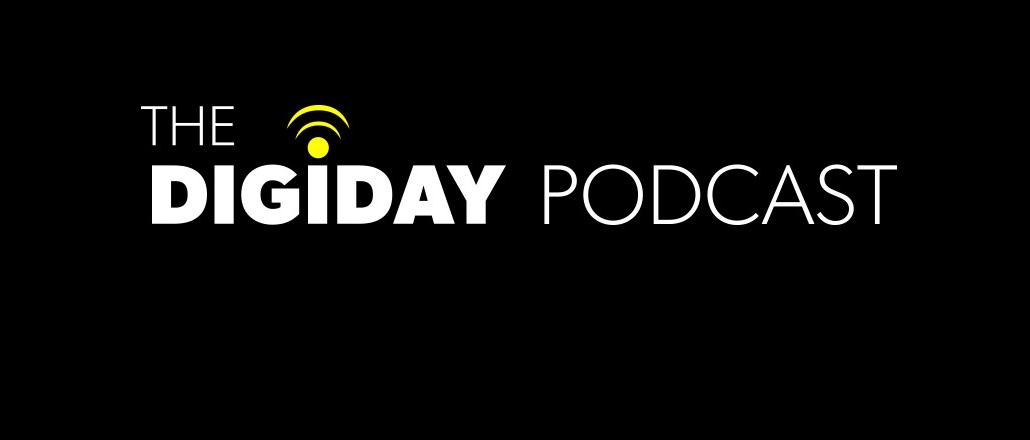
While publishers today constantly on the hunt for more pageviews and larger audiences, what they secretly really want is to be more influential. Influence, when combined with a strong brand, is what differentiates a publisher from its many competitors. It also earns them a hefty premium on ad rates. Consider Vice, which makes up for its lack of reach with the kind of brand and influence most publishers can only dream of.
Tech news aggregator Techmeme, which turns 10 in September, has wielded influence to its advantage, turning what started as the “Google News for tech blogs” into one of the most influential tech sites on the Web. This is despite the fact that Techmeme doesn’t create a lick of original content.
“Publishers have gotten too distracted by their stats,” said Techmeme CEO Gabe Rivera said on this week’s Digiday Podcast. “They’re optimizing for traffic so they’re always getting tempted to write things that are outside their core. We’re so focused on the front page and the idea of making a real news filter that we’ve ended up becoming more core and useful to our readership.”
Some edited highlights:
Publishers have forgotten the homepage
The “homepage is dead” refrain has become a particularly shrill kind of media observer hyperbole. Publishers have seen their social visitors climb rapidly and in response put their homepages on the backburner. The success of Techmeme, which is only a homepage and gets no side-door traffic, shows that the homepage still has a role, said Rivera.
“Publishers have forgotten that the front page can be a really valuable thing for the readers because it captures what the site is about and illustrates to readers what the site thinks is important,” he said. “It won’t be the primary source of traffic but it’s an important part of the experience part of the publication for readers if they do it right.”
Aggregation shouldn’t be a dirty word
For legacy publishers that paywall their expensive reporting, aggregators were the original digital boogeymen. Former New York Times editor Bill Keller said in 2011 that aggregation was like “harvesting revenue that might otherwise be directed to the originators of the material.” He probably didn’t read Techmeme.
These days the problem isn’t aggregation itself but how many sites do it — and how few go beyond it.
“More people should be talking about the industry and adding context and their point of view but we need fewer people just writing about the news,” Rivera said. “Maybe we need two or three takes, but we don’t need 40.”
Scoops still matter
Scoops have always mattered more to reporters and their editors than their readers. Thanks to Twitter, the half life of the average scoop today can be measured in minutes, if not seconds. But that doesn’t mean they don’t matter. Rivera said that when it comes to differentiation, few things match the power of a good scoop.
“Scoops will always be important,” he said. “People are always excited to find out that things are happening before other people find them out. It’s high up on the totem pole.”
The best headlines exploit a curiosity gap
Clickbait has become an unavoidable reality of the Web. Publishers want readers to click, and it turns out that withholding key information from headlines is a pretty effective way to make that happen. Techmeme started rewriting publishers’ headlines in 2013, and faced some early backlash. Don’t expect clickbait to go anywhere anytime soon.
“Sometimes the reader just wants to know that ‘so-and-so bought so-and-so for x dollars,’ but if you look at all the publications that report that story you’ll find that they’re missing one of those details,” Rivera said. “There’s enough in the headline to tease to the reader but the reader needs to click to get that additional information. Headlines are half-headlines.”
Influence is underrated
Techmeme traded scale for influence. While the site isn’t chasing every reader on the Web, it intends to get in front of the people who matter. This pays off on the business side. Techmeme runs both sponsored posts and job postings, which the site sells on their ability to get in front of the right kind of reader.
“Being an industry focused news site we can’t expect to reach millions of people,” Rivera said. “I sense we’re very influential but it’s hard to prove that except to list anecdotes about who our readers are.”
More in Media

Digiday+ Research: Dow Jones, Business Insider and other publishers on AI-driven search
This report explores how publishers are navigating search as AI reshapes how people access information and how publishers monetize content.

In Graphic Detail: AI licensing deals, protection measures aren’t slowing web scraping
AI bots are increasingly mining publisher content, with new data showing publishers are losing the traffic battle even as demand grows.

In Graphic Detail: The scale of the challenge facing publishers, politicians eager to damage Google’s adland dominance
Last year was a blowout ad revenue year for Google, despite challenges from several quarters.





